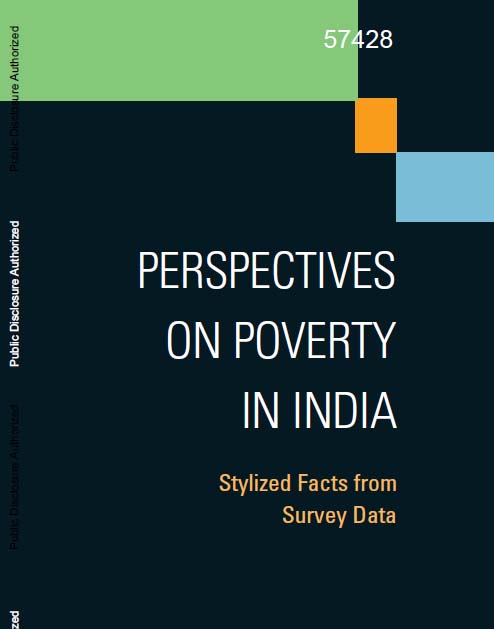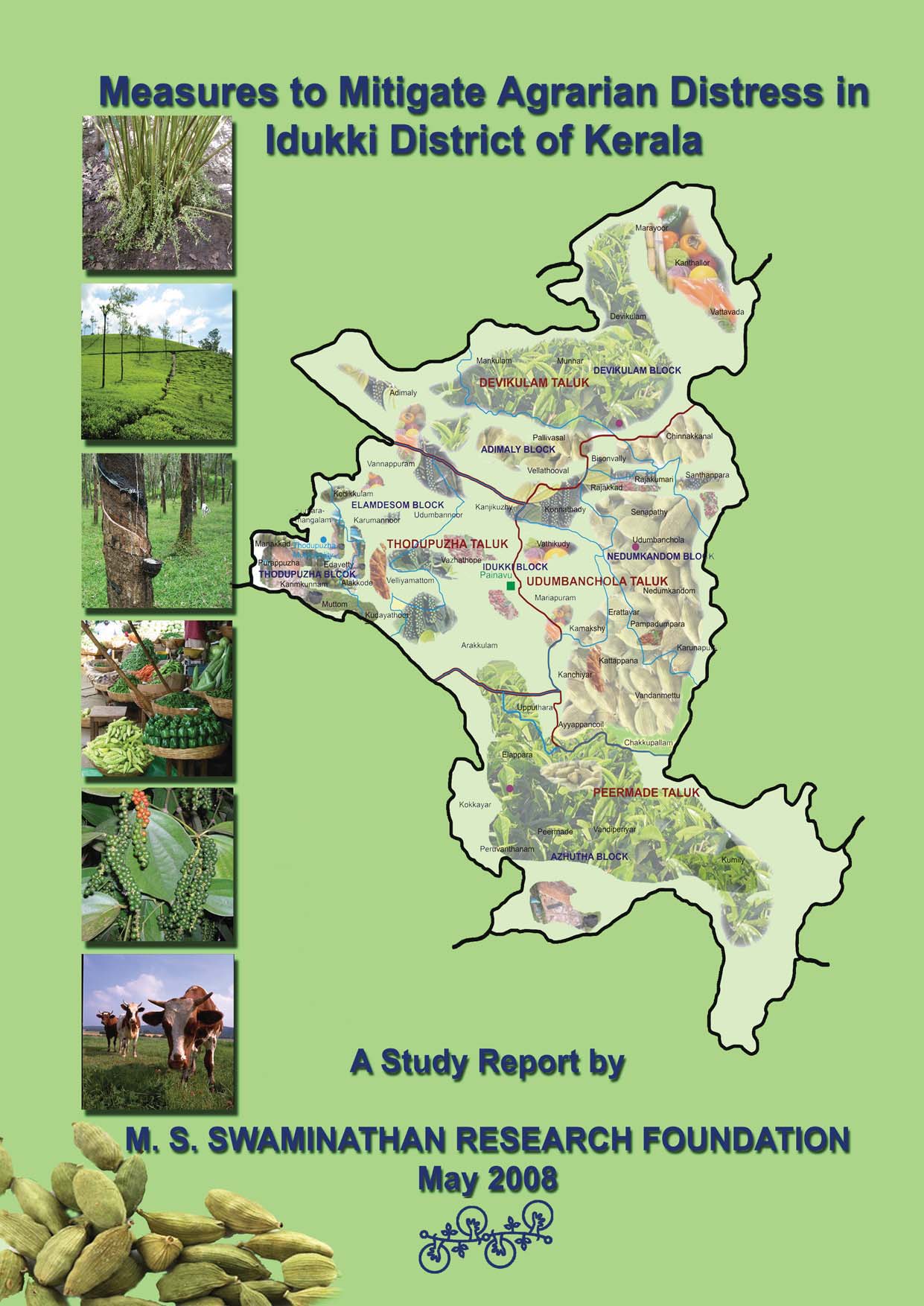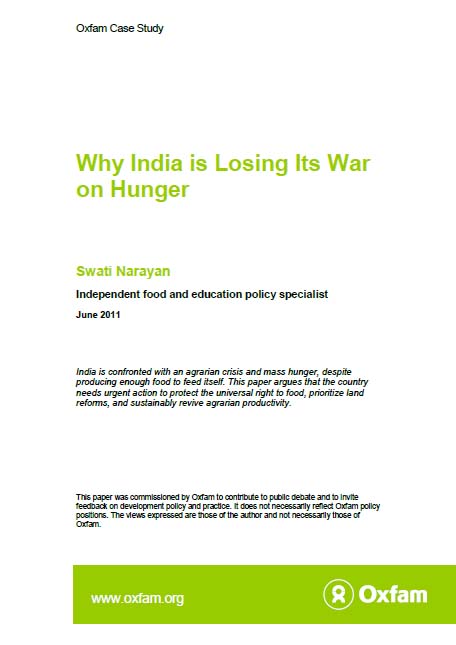Equity
Rainfed agriculture - Meeting the challenges of food security in India – A paper in Current Science
Posted on 08 Aug, 2011 06:40 PMThe paper notes that there are large opportunities for gains from adaptation and new investments in water management for meeting the targets under the proposed National Food Security Act.
Delhi Water Privatization - WASH News and policy update
Posted on 03 Aug, 2011 06:20 PMContent courtesy: India WASH Forum
Career Upliftment Program for Academics (CUPA)
Posted on 28 Jul, 2011 03:39 PMThe aim of this program is to provide an overview of both the theoretical and practical aspects of conventional and advanced technologies to the practitioners/educators for a better understanding and growing ability of applying knowledge.
The module specifically targets professionals in companies, consulting agencies, ministries, education and research institutes having BTech degree from AICTE approved institute.
A kalyani brought to life in Mulbagal, Karnataka: An Arghyam initiative
Posted on 27 Jul, 2011 05:58 PMGuest post by Manjunath Prasad
Perspectives on poverty in India - Stylized facts from survey data – A report by World Bank
Posted on 26 Jul, 2011 04:38 PM It produces a diagnosis of the broad nature of the poverty problem and its trends in India, focusing on both consumption poverty and human development outcomes.
It produces a diagnosis of the broad nature of the poverty problem and its trends in India, focusing on both consumption poverty and human development outcomes.
It also includes attention in greater depth to three pathways important to inclusive growth and poverty reduction harnessing the potential of urban growth to stimulate rural-based poverty reduction, rural diversification away from agriculture, and tackling social exclusion.
Kailash sacred landscape conservation initiative - Feasibility assessment report by ICIMOD
Posted on 25 Jul, 2011 03:19 PM This publication by International Centre for Integrated Mountain Development (ICIMOD) deals with Kailash Sacred Landscape Conservation Initiative (KSLCI), a project that seeks to conserve and sustainably manage a highly unique and special landscape through the application of trans-boundary ecosystem management approaches.
This publication by International Centre for Integrated Mountain Development (ICIMOD) deals with Kailash Sacred Landscape Conservation Initiative (KSLCI), a project that seeks to conserve and sustainably manage a highly unique and special landscape through the application of trans-boundary ecosystem management approaches.
This region, like much of the rest of the Hindu Kush-Himalayas, faces many challenges, not the least of which are global warming, globalisation and environmental degradation. The Kailash region is considered sacred to five major religions and to a large number of people in Asia and throughout the world. This area is historically, ecologically, and culturally interconnected and is the source of four of Asia’s most important rivers.
The KSLCI is an attempt on the part of the three neighbouring countries of India, China and Nepal to join hands to help preserve the unique biological diversity, the many ecosystem goods and services, and the value-based cultural heritage of one of the most revered and sacred landscapes in the world.
Fazilka citizens protest against planned encroachment on ecosensitive Badha lake wetland by Punjab Urban Development Authority (PUDA)
Posted on 21 Jul, 2011 04:16 PMForwarded to the portal by: Graduates Welfare Association, Fazilka
Measures to mitigate agrarian distress in Idukki district of Kerala : A study report by MSSRF
Posted on 10 Jul, 2011 07:38 PM Although Idukki is generally perceived as a ‘spices district’ and a ‘plantation crop district’, about 95 per cent of the farmers here are small with tribal farmers constituting a substantial component. Public investment in agriculture in this district is very poor and this hampers agricultural progress and rural livelihoods in many ways.
Although Idukki is generally perceived as a ‘spices district’ and a ‘plantation crop district’, about 95 per cent of the farmers here are small with tribal farmers constituting a substantial component. Public investment in agriculture in this district is very poor and this hampers agricultural progress and rural livelihoods in many ways.
As a result of high cost of production of major crops and its volatile prices, small farmers who constitute the majority of the farming population have accumulated debt burden exceeding 700 crores. More than eighty per cent of this debt is due to crop loans to small and marginal farmers.
The recommendations in this report are made after giving due consideration to ongoing programmes and resources being made available thereof. These are mainly focused on the small, marginal and tribal farmers and other economically disadvantaged sections. The stress is on sustainability of agricultural production systems and strengthening the regional ecology.
Conflicts and dilemma of human right to water - A Current Science paper by J Harsha
Posted on 05 Jul, 2011 04:30 PM
Download the below attachment to read the entire article:
Why India is losing its war on hunger – A case study by Oxfam
Posted on 29 Jun, 2011 08:50 AM The paper argues that the country needs urgent action to protect the universal right to food, prioritize land reforms, and sustainably revive agrarian productivity.
The paper argues that the country needs urgent action to protect the universal right to food, prioritize land reforms, and sustainably revive agrarian productivity.
India is home to a quarter of the world’s hungry people. Since the green revolution, the country has produced enough to feed itself, but it has not yet been able to wipe out mass hunger, which haunts the landscape of the countryside and lurks in the narrow alleys of urban slums.
Currently, 40 per cent of the population is malnourished – a decrease of only 10 per cent over the past three decades. Poor families, who spend more than 60 per cent of their incomes on food, are increasingly struggling to stretch their meagre household budgets. Unfortunately, small farmers have not benefited from high retail prices either, as they usually receive far less for their produce. In fact in the past 15 years, in an unprecedented wave, a quarter of a million farmers crippled by debt have chosen to commit suicide.



